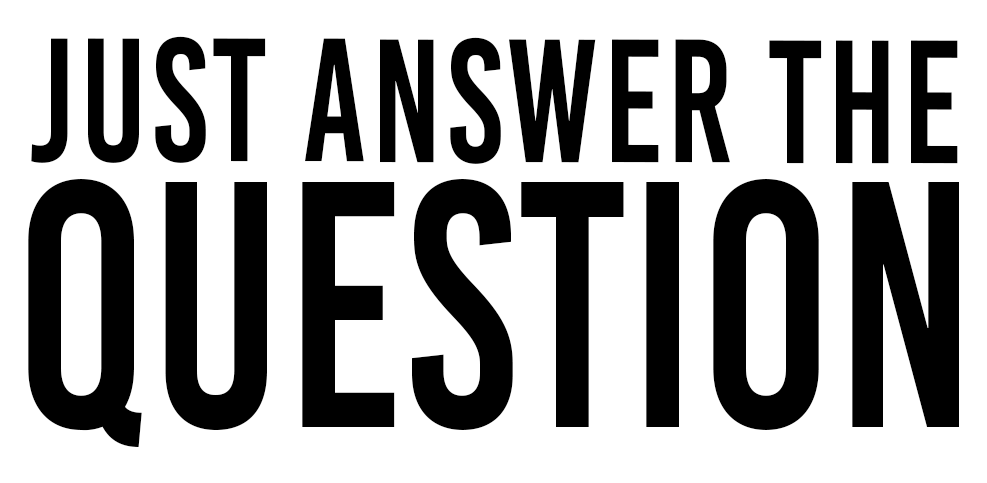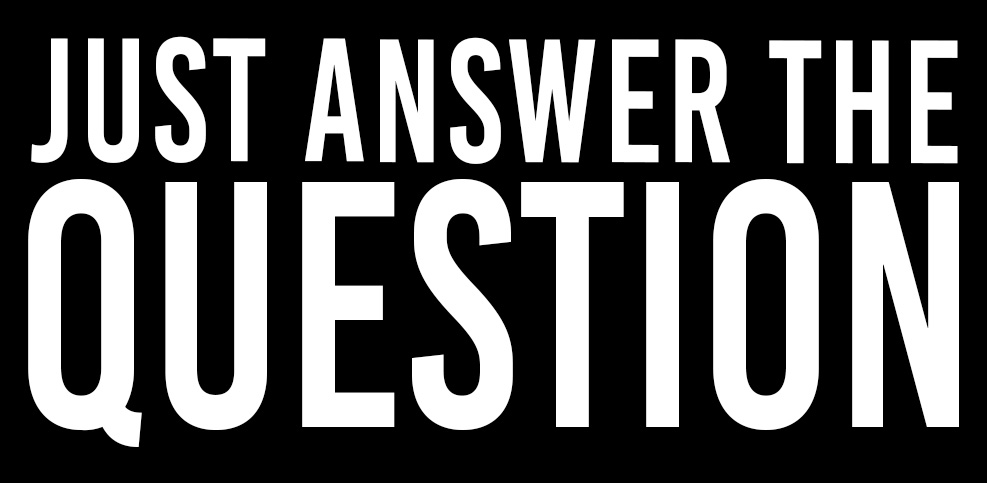About Our Campaign
Campaign Overview
Just Answer The Question (JATQ) is an independent initiative aimed at defending free speech and democratic rights in the upcoming British general election. Our campaign involves asking all candidates five straightforward ‘Yes’/’No’ questions to determine their stance on free speech issues. The responses, or lack thereof, will be documented on our website, allowing voters to assess the free speech credentials of their candidates.
Key Objectives
-
Make Free Speech a Central Election Issue: Significant portions of the public are concerned about free speech, yet many candidates largely ignore these concerns. Our campaign aims to change this by highlighting candidates’ positions on free speech.
-
Engage Voters: Voters can use our platform to test candidates’ free speech stances before election day. Candidates who answer ‘Yes’ to all questions will be recognized as Free Speech Champions.
Why This Matters
Free speech is the cornerstone of all other freedoms, and it is currently under threat in Britain. Examples include:
- Vaguely-Drafted Laws: Laws like the Public Order Act 1986 and the Malicious Communications Act 1988 are used to limit free speech. The Hate Crime and Public Order (Scotland) Act 2021 and the Online Safety Act 2023 further extend these restrictions.
- Political Impartiality in Education: Schools are teaching controversial topics like ‘Critical Race Theory’ and transgender ideology as fact, without presenting balanced perspectives as required by law.
- Self-Censorship and Cancel Culture: Fear of social media backlash and job loss is causing people to self-censor, stifling open debate.
The current actions by government and institution in shutting down free speech to protect people from offence is likely to further polarise society. Institutions should not proscribe controversial but legal behaviours, speech and views and set the police against otherwise law-abiding citizens for breaching them. The only way to bring communities together is for politicians to robustly defend a common shared set of values in protecting free speech - no matter how uncomfortable that is - and let poor opinions be defeated in debate and argument.
The Five Key Questions
-
Do you agree the police should stop placing persons on ‘hate’ registers who have committed no crime? YES or NO
- The College of Policing’s guidance leads to “Non Crime Hate Incidents” (NCHI) being recorded, chilling free speech. Approximately 120,000 NCHIs have been recorded, potentially impacting individuals’ employment prospects.
-
Do you agree that parents and psychotherapists should be free to advise young persons and others not to change sex/gender? YES or NO
- Proposed laws against “LGBT+ conversion therapy” could criminalise parents and professionals advising against gender transition, representing state overreach into private lives and professional advice.
-
Do you believe that it is wrong for teachers to tell school kids that Britain is a ‘structurally racist’ society? YES or NO
- Schools teaching CRT as fact without presenting alternative views violates principles of balanced education and critical thinking.
-
Do you agree that an official state definition of ‘Islamophobia’ will curtail our right to be critical of a religion? YES or NO
- The 2018 definition adopted by the All-Party Parliamentary Group on British Muslims conflates criticism of Islam with racism, potentially reintroducing blasphemy laws by the back door.
-
Do you agree that everyone should have freedom to speak their mind which includes the right to offend and hold controversial views? YES or NO
- Free speech includes the right to offend. Candidates’ voting records and public statements will be scrutinised to ensure consistency with their answers.
Addressing Common Questions
-
Is this not targeting specific political parties?
No, JATQ is non-partisan and seeks to build a cross-party alliance supporting free speech. -
Is this not a ‘Culture Wars’ distraction?
Free speech is fundamental to democracy. Defending it is not about provoking culture wars but about preserving democratic rights. -
Is Free Speech really under threat?
Yes, through various laws and state actions that limit free expression and encourage self-censorship.
Conclusion
The JATQ campaign is crucial in highlighting where candidates stand on free speech issues, enabling voters to make informed decisions. Free speech transcends political ideology, and defending it is essential for a healthy democracy. Join us in making free speech a pivotal issue in this election.
You can download our full briefing note here

